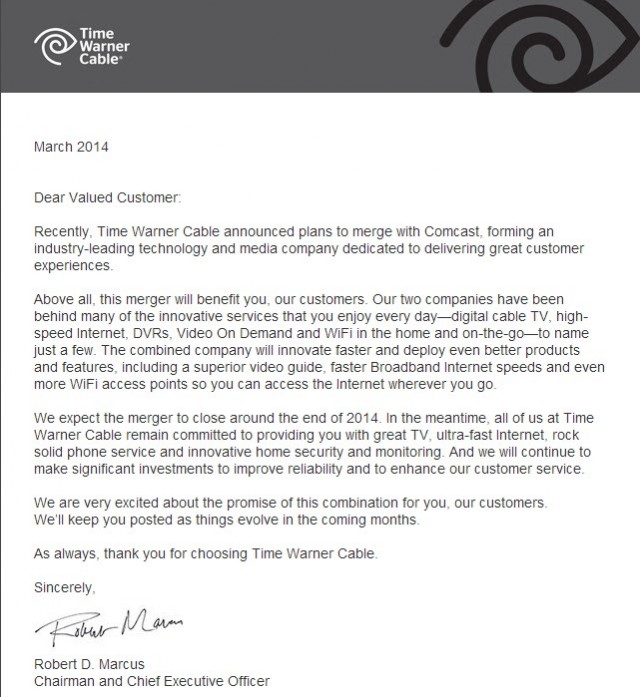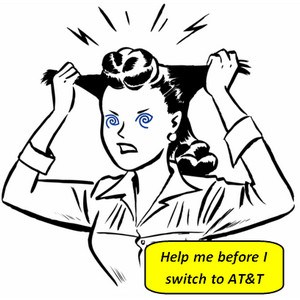 Despite claims of improved customer service and better broadband, Comcast and Time Warner Cable’s customer satisfaction scores are in near-free fall in the latest Consumer Reports National Research Center’s survey of consumers about their experiences with television and Internet services.
Despite claims of improved customer service and better broadband, Comcast and Time Warner Cable’s customer satisfaction scores are in near-free fall in the latest Consumer Reports National Research Center’s survey of consumers about their experiences with television and Internet services.
Although never popular with customers, both cable operators plummeted in the 2014 Consumer Reports ratings — Time Warner Cable is now only marginally above the perennial consumer disaster that is Mediacom. Comcast performs only slightly better.
In the view of Consumers Union, this provides ample evidence that two wrongs never make a right.
“Both Comcast and Time Warner Cable rank very poorly with consumers when it comes to value for the money and have earned low ratings for customer support,” said Delara Derakhshani. “A merger combining these two huge companies would give Comcast even greater control over the cable and broadband Internet markets, leading to higher prices, fewer choices, and worse customer service for consumers.”
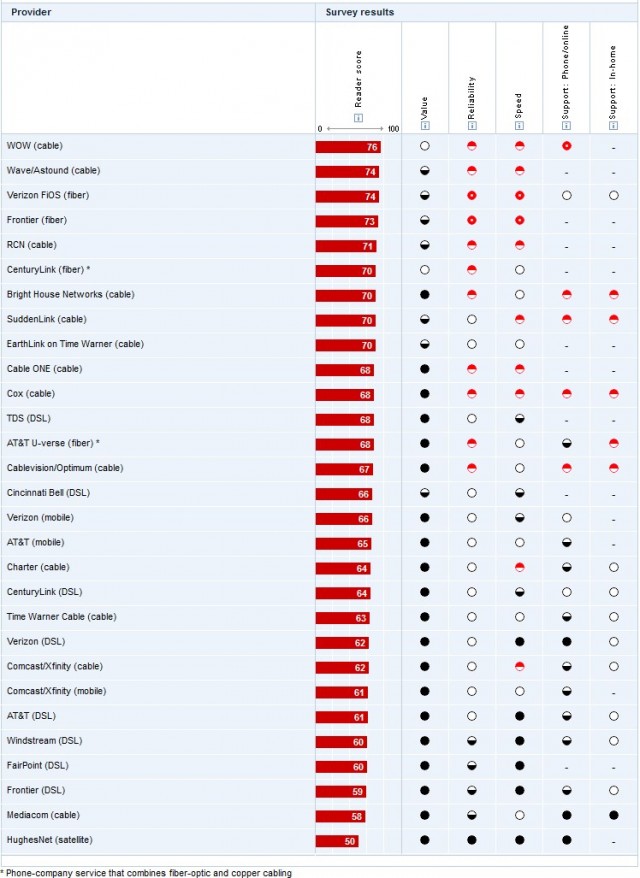
These ratings reflect Internet service only.
Comcast ranked 15th among 17 television service providers included in the ratings and earned particularly low marks from consumers for value for the money and customer support. Time Warner ranked 16th overall for television service with particularly low ratings for value, reliability, and phone/online customer support.

Another ratings collapse for Comcast and Time Warner Cable
Comcast and Time Warner Cable were mediocre on overall satisfaction with Internet service. Both companies received especially poor marks for value and low ratings for phone/online customer support.
“In an industry with a terrible track record with consumers, these two companies are among the worst when it comes to providing good value for the money,” said Derakhshani. “The FCC and Department of Justice should stand with consumers and oppose this merger.”
For as long as Stop the Cap! has published, Mediacom has always achieved bottom of the barrel ratings, with satellite fraudband provider HughesNet — the choice of the truly desperate — scoring dead last for Internet service. We’re accustomed to seeing the usual bottom-raters like Frontier (DSL), Windstream (DSL), and FairPoint (DSL) on the south end of the list. But now both Comcast and Time Warner Cable have moved into the same seedy neighborhood of expensive and lousy service. Comcast couldn’t even beat the ratings for Verizon’s DSL service, which is now barely marketed at all. Time Warner Cable scored lower than CenturyLink’s DSL.
Breathing an ever-so-slight sigh of relief this year is Charter Communications, which used to compete with Mediacom for customer raspberries. It ‘rocketed up’ to 18th place.
If you want top-notch broadband service, you need to remember only one word: fiber. It’s the magical optical cable phone and cable companies keep claiming they have but largely don’t (except for Verizon and Cincinnati Bell, among a select few). If you have fiber to the home broadband, you are very happy again this year. If you are served by an independent cable company that threw away the book on customer abuse, you are relieved. Topping the ratings again this year among all cable operators is WOW!, which has a legendary reputation for customer service. Wave/Astound is in second place. Verizon and Frontier FiOS customers stay pleased, and even those signed up with Bright House Networks and Suddenlink report improved service.
Ratings are based on responses from 81,848 Consumer Reports readers. Once again they plainly expose Americans are not happy with their telecom options. The average cost of home communications measured by the Mintel Group is now $154 a month — $1,848 a year. That’s more expensive than the average homeowner’s clothing, furniture or electricity budget. The same issues driving the bad ratings last year are still there in 2014: shoveling TV channels at customers they don’t want or need, imposing sneaky new fees along with broad-based rate increases every year, low value for money, and customer service departments staffed by the Don’t Care Bears.


 Subscribe
Subscribe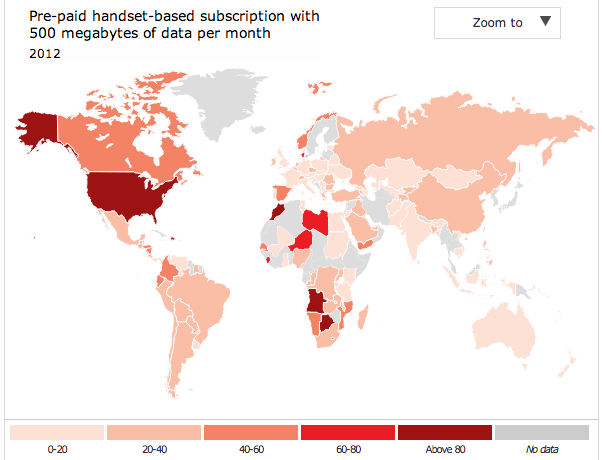 Sharma said the only disruption to this revenue growth in the United States comes from T-Mobile USA, which has recently cut prices on its service plans, forcing AT&T and Verizon Wireless to react with moderate price cutting. But with the significant disparity in market share between AT&T and Verizon vs. T-Mobile, neither larger carrier is expected to take a significant hit to their bottom lines without a mass exodus to the country’s fourth largest provider.
Sharma said the only disruption to this revenue growth in the United States comes from T-Mobile USA, which has recently cut prices on its service plans, forcing AT&T and Verizon Wireless to react with moderate price cutting. But with the significant disparity in market share between AT&T and Verizon vs. T-Mobile, neither larger carrier is expected to take a significant hit to their bottom lines without a mass exodus to the country’s fourth largest provider.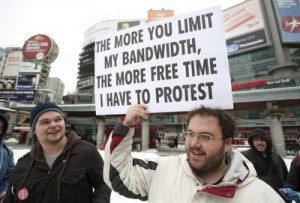
 “If you take the 30GB a month and compare it to what median usage is, let’s say high 20s — 27GB a month, that would suggest a whole lot of customers would do well by taking the 30GB service,” Marcus said. “Notwithstanding that, very few customers — in the thousands — have taken the usage based tiers and I think that speaks to the value they place on unlimited — not bad because we plan to continue to offer unlimited for as far out as we can possibly see.”
“If you take the 30GB a month and compare it to what median usage is, let’s say high 20s — 27GB a month, that would suggest a whole lot of customers would do well by taking the 30GB service,” Marcus said. “Notwithstanding that, very few customers — in the thousands — have taken the usage based tiers and I think that speaks to the value they place on unlimited — not bad because we plan to continue to offer unlimited for as far out as we can possibly see.”